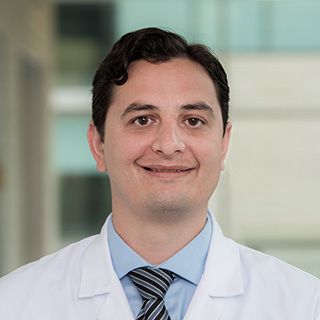About This Course
Course 2 describes clear ways clinicians can practice high-value care in their day-to-day work . Module 6 describes how to decrease out-of-pocket costs for patients through high-value prescribing. Module 7 addresses communication techniques that build trusting relationships with patients and enable the delivery of high-value care.
MODULE 6: ENHANCING AFFORDABILITY FOR PATIENTS THROUGH HIGH-VALUE PRESCRIBING.This module will focus on how you can help patients decrease their out-of-pocket medication costs through pragmatic solutions. The high costs of medications is an increasing challenge for patients, leading many to not be able to follow through with their treatment plans. There are simple steps you can take to help them.
MODULE 7: INTRODUCTION TO HIGH-VALUE COMMUNICATION. Effective communication is the key to developing strong relationships that lead to high-value care delivery. However, these conversations can be challenging. This module provides clear tactics to overcome common pitfalls and to lead conversations that enhance trust and understanding.
Meet the Team
Lead Author
Dr. Chris Moriates is the Assistant Dean for Healthcare Value and an Associate Professor in the Department of Internal Medicine at the Dell Medical School at The University of Texas at Austin. He is responsible for creating an innovative curriculum for value-based healthcare for undergraduate, graduate, and continuing medical education. Dr. Moriates co-authored the McGraw-Hill book, Understanding Value-based Healthcare, and contributes to national curricula on high-value care for trainees and frontline clinicians.
Contributing Author
David Ring is associate dean for comprehensive care and professor of surgery and psychiatry at Dell Medical School. Before moving to Austin, Ring was a professor of orthopedic surgery at Harvard Medical School, chief of hand surgery at Massachusetts General Hospital, and chair of the MGH Orthopedic Quality and Patient Safety Committee. He was awarded a Ph.D. for clinical research in psychosocial aspects of arm pain from the University of Amsterdam in 2005. His interests include trauma and post-traumatic reconstruction in the arm, quality and patient safety, common arm illnesses and psychosocial aspects of arm illness.
Co-Author
Victoria Valencia is Assistant Professor of Medical Education at Dell Medical School at The University of Texas at Austin. Her background is in public health and statistics. She is a data analyst and programmer and uses R to analyze and visualize complex data from clinical research databases and electronic health records to help answer questions around quality, value and appropriateness of care provided to patients. She has co-authored several articles that investigate ways to improve the value of care patients receive while in the hospital.
Frequently Asked Questions
What web browser should I use?
The Open edX platform works best with current versions of Chrome, Edge, Firefox, Internet Explorer, or Safari.
See our list of supported browsers for the most up-to-date information.
Question #2
Your answer would be displayed here.
Requirements
In order to access the content of the this collection learners must first complete the Course 2 pre test included at the start of the course content. While the collections 1A, 1B, 2, and 3 are best taken in order, there is no requirement to do so.
CME Requirements
Collection Three: Improving Value at the Bedside: To receive AMA PRA Category 1 Credit(s)™ you must complete the evaluation survey through Dell Medical School, which becomes available once you complete Modules 6 and 7. The estimated time to complete this module is 2 hours and 30 minutes.
The University of Texas at Austin Dell Medical School is accredited by the Accreditation Council for Continuing Medical Education (ACCME) to provide continuing medical education for physicians.
The University of Texas at Austin Dell Medical School designates this enduring material for a maximum of 2.50 AMA PRA Category 1 Credit(s)™. Physicians should claim only the credit commensurate with the extent of their participation in the activity.




